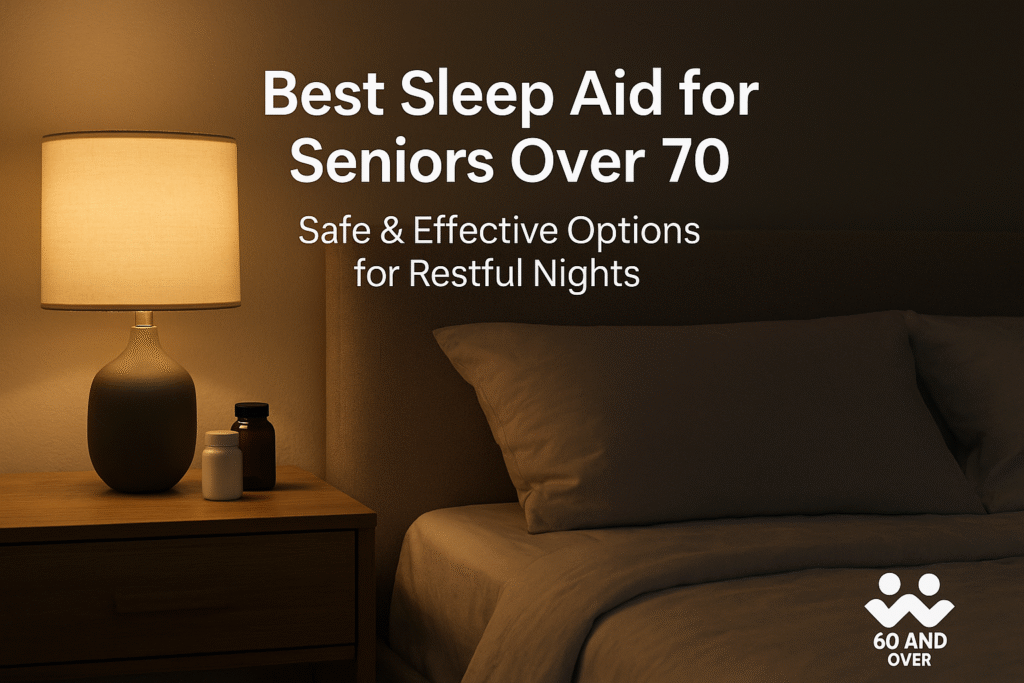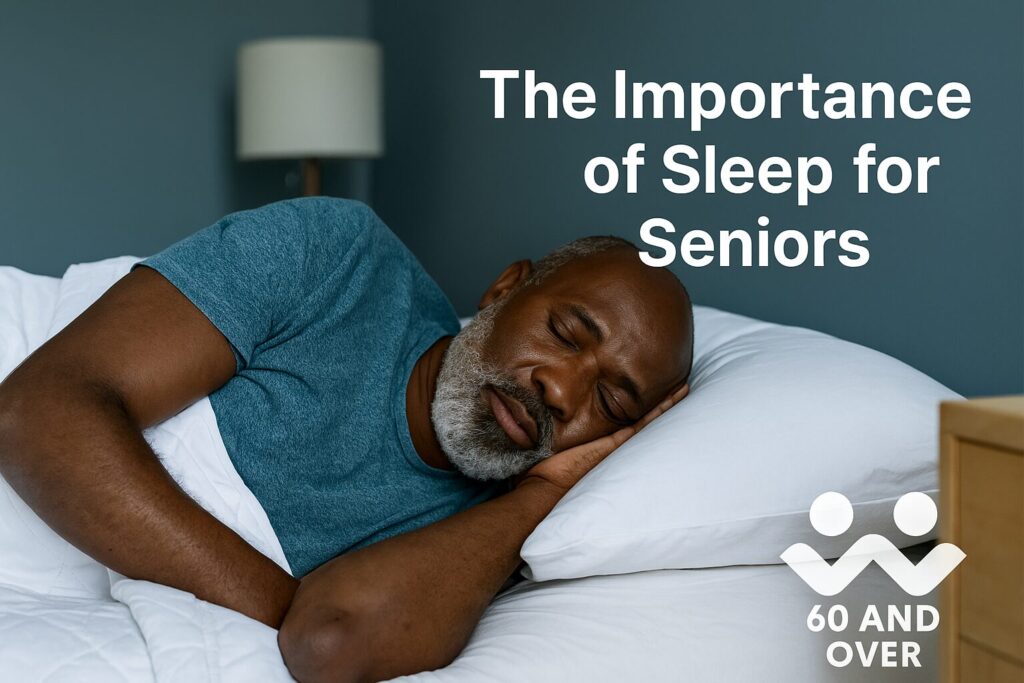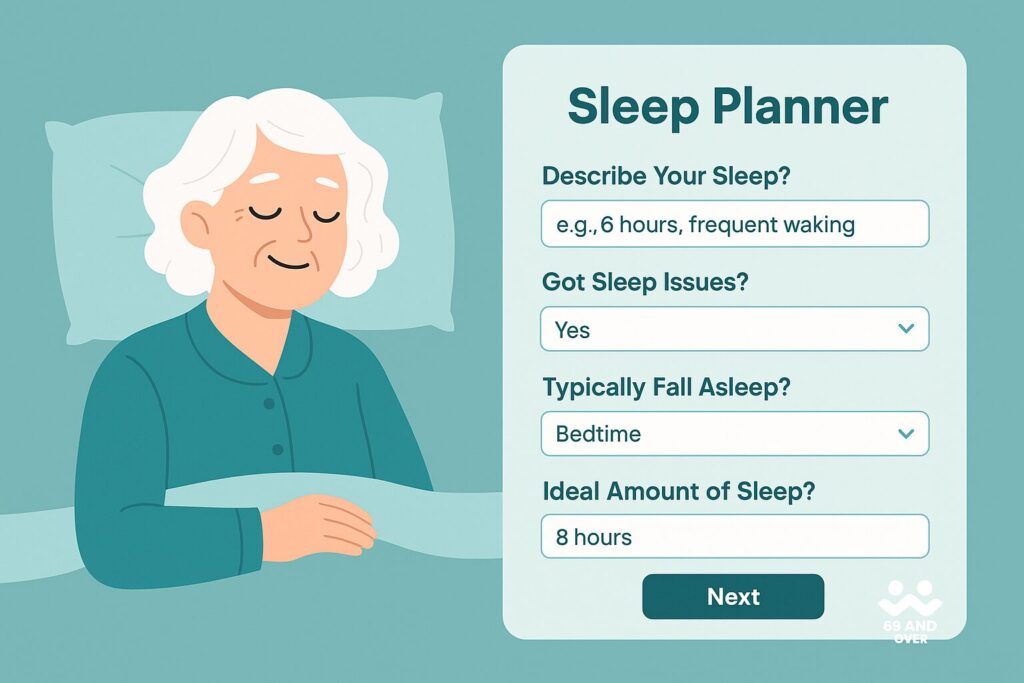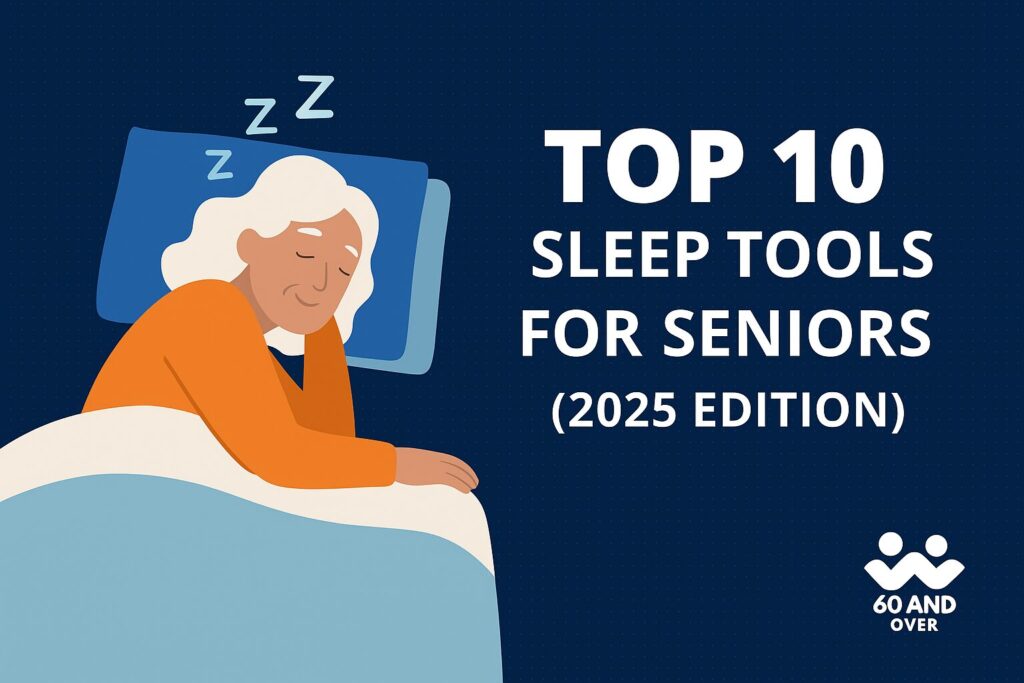Getting a good night’s sleep can become harder later in life, but it’s still one of the most important parts of staying healthy and alert. Many adults over 70 notice lighter sleep, frequent waking, or difficulty drifting off. These changes often happen because of normal body shifts, certain medications, or ongoing health concerns.
The good news is, you don’t have to accept restless nights — there are safe, gentle ways to improve your rest. In this guide, we’ll look at the best sleep aid for seniors over 70 and other natural options that help older adults wake up feeling truly refreshed.
If you or a loved one is struggling with sleep, you may be wondering: What is the best sleep aid for seniors over 70? This article explores safe, effective options — both natural and medical — tailored for older adults.
Why Seniors Over 70 Struggle with Sleep
Before jumping into solutions, it’s important to understand why sleep gets disrupted later in life. Common causes include:
Changes in sleep cycles – Many older adults experience lighter, shorter sleep cycles. The National Institute on Aging explains that these changes are common in later life, but small bedtime adjustments and gentle natural support can often help improve rest.
- Chronic conditions – Arthritis, heart disease, and bladder issues can interrupt rest.
- Medications – Some prescriptions may cause sleep disturbances as a side effect.
- Reduced melatonin – The body naturally produces less melatonin with advancing years.
- Emotional and mental health – Anxiety, grief, and depression can make falling asleep more difficult.
What to Look for in a Sleep Aid for Seniors Over 70
Safety is the top priority. Sleep aids for those in their 70s and beyond should:
- Be non-habit forming
- Have minimal side effects
- Avoid interactions with existing medications
- Support natural sleep cycles
- Be gentle on digestion and easy to use
Best Over-the-Counter (OTC) Sleep Aids for Seniors Over 70
1. Melatonin (Low Dose)
- What it is: A hormone that regulates sleep-wake cycles
- Why it’s good for seniors: Replaces what the body naturally lacks with time
- Typical dose: 0.3–1 mg to start (lower doses are safer and often more effective)
- Tip: Take 1–2 hours before bedtime
- Adults take one of these Melatonin 3mg sleep supplements one hour before bedtime with water
- Occasional use sleep support supplement: Contains one 240 count bottle of Nature Made Melatonin…
- These Nature Made Melatonin Tablets are 100% drug free, gluten free, non habit forming, have no…
- Melatonin is a hormone found naturally in the body that helps to regulate sleep and wake cycles
2. Magnesium
- What it is: A mineral that supports relaxation and nerve function
- Why it helps: May improve sleep quality and reduce nighttime waking
- Sources: Supplements or foods like almonds, spinach, and whole grains
- Heart Health Supplements: This magnesium glycinate capsule activates the enzymes necessary for…
- Overall Health & Nutrient Metabolism: This magnesium glycinate supplement helps the metabolism…
- Energy & Bone Support: Magnesium supports metabolism of carbs and amino acids; supports energy…
- Magnesium Capsules for Sensitive Individuals: Magnesium glycinate is a form of magnesium that’s…
3. Valerian Root
- What it is: A plant extract with mild sedative properties
- Caution: May interact with some medications and cause grogginess
- Sleep Support: Valerian root is traditionally used for restful sleep and ease during times of…
- Melatonin Alternative: Sleep support with no added synthetic melatonin*
- Calming Sleep Formula: Provides 1.8mg of valerenic acids for traditional sleep support*
- Our Commitment to Quality: We thoughtfully source high-quality ingredients from around the…
4. Diphenhydramine (Benadryl) or Doxylamine (Unisom)
- Warning: Though common, these antihistamines can cause confusion, dizziness, or urinary retention in seniors and are not recommended for long-term use in people over 65 (per the Beers Criteria).
- 🔵 Effective Sleep Support: Each softgel contains 50 mg of Diphenhydramine HCl, a widely…
- 🔵 Fall Asleep Fast & Stay Asleep: Helps you drift off more easily and wake up feeling…
- 🔵 Large Count for Value: With 250 softgels per bottle, you’ll have a convenient supply for…
- 🔵 Easy-to-Swallow Softgels: Liquid-filled softgel format allows for faster absorption and…
When Natural Options Aren’t Enough
If natural methods don’t bring relief, it’s best to talk with your healthcare provider about other gentle, doctor-approved options, as explained by the Mayo Clinic.
1. Low-Dose Doxepin (Silenor)
This low-strength formula is designed for sleep maintenance insomnia — trouble staying asleep through the night. It works at very small doses (3–6 mg) and has a low risk of dependency.
2. Trazodone
Originally developed as an antidepressant, trazodone is sometimes used in small amounts to improve sleep quality. It can help some older adults fall asleep faster, though it may cause light morning grogginess in others.
3. Ramelteon (Rozerem)
Ramelteon acts much like the body’s natural melatonin and helps signal when it’s time to rest. It’s non-habit-forming and generally considered safe for adults in their later years.
Non-Medication Alternatives That Work
Medication isn’t always necessary. These behavioral and lifestyle changes can work just as well — or even better — over time:
- Stick to a routine: Go to bed and wake up at the same time each day.
- Limit naps: Especially late in the afternoon.
- Create a bedtime wind-down: Read, take a warm bath, or listen to calming music.
- Reduce screen time: Blue light from phones and tablets interferes with melatonin production.
- Avoid caffeine and alcohol late in the day.
When to See a Doctor
If sleep troubles persist for more than a few weeks or begin to affect daily life, it’s time to speak with a healthcare provider. Ongoing sleep problems in seniors can sometimes point to conditions such as:
- Sleep apnea
- Restless leg syndrome
- Depression or anxiety
- Medication interactions
Final Thoughts
There’s no one-size-fits-all solution for sleep challenges later in life. The best sleep aid is one that’s safe, gentle, and suited to your unique health needs. For many, low-dose melatonin combined with good sleep habits is enough. For others, a carefully prescribed medication may be the right fit.
Always consult a doctor before starting any sleep aid, especially if you’re taking other medications or managing chronic conditions. Restful nights are possible — and they’re worth prioritizing.
Frequently Asked Questions About Sleep Aids for People Over 70
1. What is the safest sleep aid for people over 70?
The safest sleep options are usually low-dose melatonin or magnesium, since both work gently with your body’s natural rhythm. They have very few side effects and can help older adults fall asleep faster and stay asleep longer. Always start with a low dose and check with your doctor before trying anything new.
2. Are sleep aids safe for older adults to use every night?
Some can be used nightly, like melatonin or herbal blends made with chamomile or valerian. Strong sleep medications, however, should only be used under medical guidance. The goal is to build healthy sleep habits, not depend on a tablet.
3. What natural remedies help with sleep after 70?
Many people find success with magnesium, lavender oil, valerian root, or herbal teas. Pairing these with a calming routine — reading, stretching, or soft music — often helps more than relying on medication alone.
4. How can people over 70 sleep better without medication?
Keep a regular bedtime, avoid caffeine after noon, and limit screen time before bed. A cool, quiet bedroom and a light snack can also make a big difference for restful sleep.
5. When should someone talk to a doctor about sleep problems?
If poor sleep lasts longer than two weeks or causes daytime fatigue, confusion, or mood changes, it’s time to see a doctor. Sleep problems can sometimes point to sleep apnea, restless leg syndrome, or medication side effects that need attention.
Related Reading
Looking to learn more about sleep health and natural rest solutions? Here are a few guides you may find helpful:
🔹 Sleep Apnea in Older Adults: Causes and Treatments for Better Rest
Learn how sleep apnea affects breathing, energy, and heart health — and what steps can help you breathe easier through the night.
🔹Best Natural Sleep Aid for Elderly: Safe, Gentle, and Truly Effective
Discover gentle, non-habit-forming options that support calm, deep sleep — from herbal blends to safe nutrients your body recognizes.
🔹 Sleep Hygiene Tips That Actually Work for Mature Adults
Explore simple bedtime routines, lighting changes, and room adjustments that can make every night more restful.









